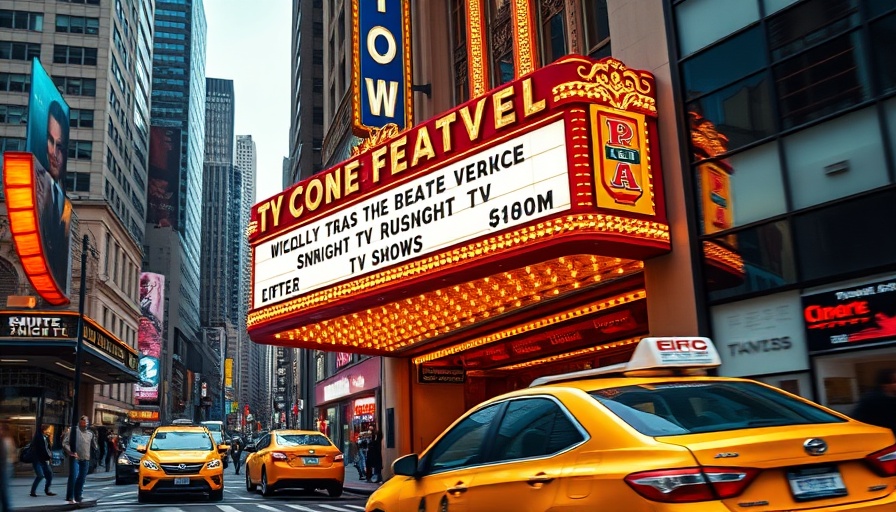
The Shifting Landscape of Late Night TV
The recent cancellation of "The Late Show with Stephen Colbert" on CBS has raised eyebrows and sparked conversations about the future of the late-night television landscape. With growing competition from streaming platforms and changing viewer preferences, traditional TV shows are facing unprecedented challenges. Colbert's exit could signify more than just the end of a popular show; it raises fundamental questions about whether the classic late-night format can endure the rapid evolution of media consumption.
Why Late Night Shows Are Struggling
One major factor contributing to the struggles of late-night shows is the rising cost of production. As networks compete for viewers in a saturated market, expenses have ballooned while audience numbers dwindle. Ad revenue has also taken a hit, especially as advertisers shift their focus to digital platforms where younger viewers are more likely to spend their time. Late-night shows traditionally have relied on hefty advertising budgets, but with fewer opportunities to monetize their content effectively, many are left grappling with financial viability.
The Future Outlook on Late Night Shows
The fate of "Jimmy Kimmel Live," which has been on the air since 2003, is closely watched as Kimmel's contract nears its expiration in 2026. Should Disney decide to renew his show, it may provide a glimmer of hope for late-night television. Conversely, if Kimmel’s show is also sidelined, it could signal a broader trend of decline in the genre. NBC recently extended contracts for both Jimmy Fallon and Seth Meyers until 2028, but even this move may not be enough to ward off the shifting tides affecting all late-night programming.
The Impact of Streaming Platforms
As viewers increasingly turn to platforms like Netflix, Hulu, and Disney+, traditional late-night formats are being questioned. These streaming services provide on-demand content that allows viewers to watch what they want, when they want. This independence from a fixed viewing schedule challenges the relevance of late-night shows, which rely on generating buzz based on real-time events. For younger audiences particularly, this shift is significant—many no longer see late-night shows as a primary source of entertainment. Instead, many prefer the shorter, edgier content on social media platforms.
Local vs. Global Perspectives on Late Night Shows
While traditional late-night shows like Colbert's have faced challenges in the United States, global perspectives offer critical insights. In countries like Japan, where variety shows blend sketch comedy with celebrity interviews, alternatives to the standard late-night format thrive. This prompts the question: will American late-night shows adapt and evolve, or will they cling to familiar models that may no longer resonate with viewers?
What Can Be Done to Revitalize Late Night?
Late-night television now finds itself at a crossroads, with many possible paths for revitalization. The key may lie in innovation—whether that means integrating more digital content, emphasizing social media engagement, or rethinking traditional episodes to make them more relevant to today's audiences. To survive, shows might need to focus not just on interviews, but also on engaging storytelling, compelling formats, and interactive features that draw in audiences from platforms beyond television.
Feeling the Effects as Viewers
For devoted fans of late-night television, these changes can be disheartening. The nostalgic appeal of watching a favorite host engage with celebrity guests after a long day is a cherished tradition for many. Viewers need to start asking themselves—what keeps them tuning in? Is it the host, the guests, or the shared laughter? Understanding what resonates can be vital in shaping the future of late-night shows.
As the late-night format faces uncertain times, reflection upon its future is essential. Whether you’re a long-time fan or a casual viewer, now is the moment to engage in the discussion about what you value in late-night television. With many changes ahead, your perspective could be part of the evolution of this beloved genre.
 Add Row
Add Row  Add
Add 




Write A Comment